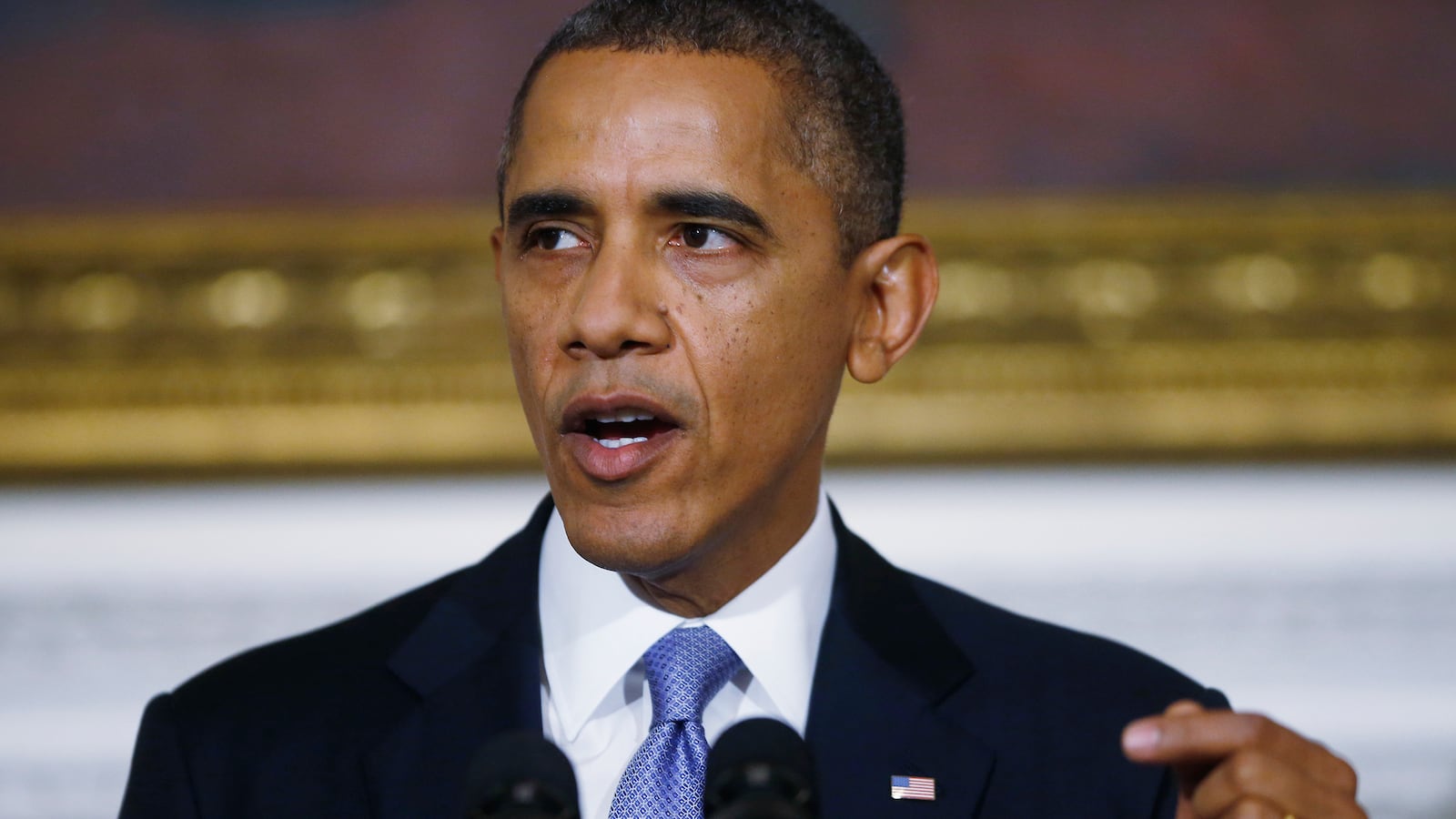What a chance the Republicans missed to give President Obama the worst few weeks of his second term. If they had just gotten out of their own way, they could have kept up the media glare on the embarrassing presidential imagery of the Syria episode, swiftly followed by the massively uncool cock-up of the health-care rollout. They wouldn’t have had to lift a finger. Instead they redirected all that lovely negative karma at themselves.

Perhaps the most damaging aspect of the Obamacare tech nightmare is how wholly predictable it all was. Anyone who has been involved in building the most rudimentary of web operations knows nothing ever works as it’s supposed to. Even awesome Apple, mighty Microsoft, and gargantuan Google miss deadlines.
Not only is the tech itself full of glitches and gremlins, but the “content” it conveys requires very different species of people to collaborate in ways they never will. Techies know they hold all the cards to the obscure and procrastinate on the grounds of engineering mysteries. The information or editorial people feel so passé and irrelevant that they never voice their secret fears that what is moving inexorably forward makes no discernible sense. When panic sets in, they regress completely and start ordering up things that are technical flops, too. Then everyone braces for this car crash they hope won’t metastasize into a train wreck.
That the capable, silvery Kathleen Sebelius is the face of Obamacare makes me want to weep. She brings to mind every legacy media company editor in chief in 2009 pluckily defending some doomed new digital enhancement that will later be scrapped and paid for with newsroom layoffs.
There is an even more doleful cultural signifier in all this: the mess that invariably follows the big announcement. It’s been going on a long time, this high-flying inattention to detail in American life.
The 2008 financial crisis is usually attributed to vampire squid greed. There was certainly a lot of that. But it was also just as likely to have been caused by the chaos of process created by those big, sexy bank mergers when, in the name of “economies of scale,” critical members of the trust and responsibility chain were cavalierly eliminated.
In today’s gig economy, where jobs have been replaced by “portfolios of projects,” most people find themselves doing more things less well for two-thirds of the money. They—we—text each other we’re “crazed.” Then comes a frenzy of activity accomplishing nothing much. Much of the working day is spent papering over a job half done from the day before. Voicemails vanish into the void. Messages from colleagues, to say nothing of friends, are buried forever under the email avalanche. Everywhere you turn, people feel stranded by holes in the chain of command. No one has time, in all the hyper-connectivity, to talk about the details, the structure, the unglamorous granularity of how things get done.
The best shoe-leather reporting I have seen on the health-care rollout was on Hollywood Boulevard—of all places—earlier this month, when Jimmy Kimmel Live stopped pedestrians to ask, “What would you rather have? Obamacare or the Affordable Care Act?” Respondents robustly scorned Obamacare as “un-American” or worthless, while conceding that the Affordable Care Act had a lot to recommend it. Nothing better conveys the haze of half-absorbed fact and misinformation that has become the daily diet of conversation.
Obamacare is the wildly complex Rube Goldberg contraption it is because getting the legislation through Congress required so many political tradeoffs and so many unavoidable deals with so many vested interests. But that’s no excuse. Lost in the raucous cable noise are the voices of desperate people shut out yet again, this time by incompetence. And that’s tragic, not uncool. That’s obscene, not a juicy partisan spin for Ted Cruz. How ironic if Obama’s signature accomplishment becomes instead a metaphor for his presidency’s signature problem: big pronouncements and lousy follow-up, the curse of our times.





